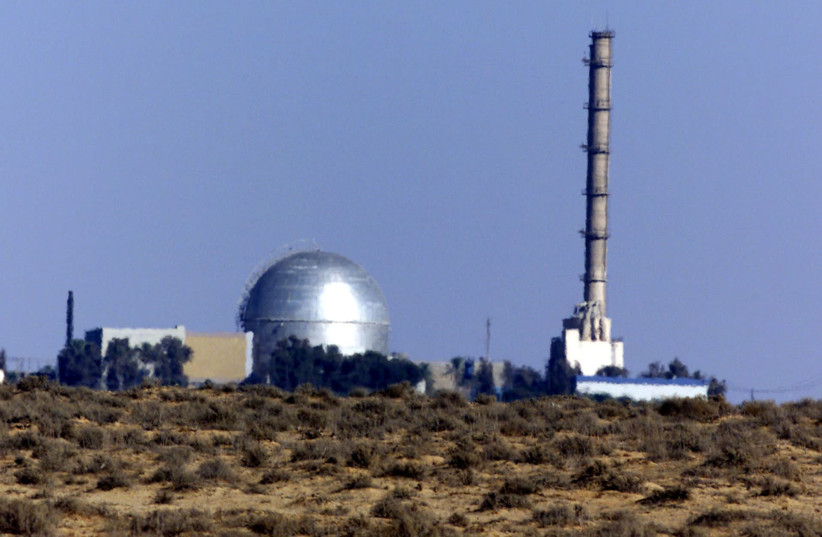On August 1, Prime Minister Yair Lapid may have let the cat out of the bag.
Did he finally go farther than other prime ministers in confirming or suggesting that Israel has nuclear weapons?
Standing in the Prime Minister's Office, he said that alongside Israel’s defense and attack capabilities, its “other capabilities” keep it alive.
'Other capabilities'
“The operational arena in the transparent dome above us is made up of defense capabilities and attack capabilities and what is commonly called in the foreign media ‘other capabilities,’” he said at a ceremony for the new head of the Israel Atomic Energy Commission. “These other capabilities keep us alive and will keep us alive as long as we and our children are here.”
True, he did not come right out and say “Israel has nuclear weapons,” but what else could he have been referring to at the ceremony when discussing offensive, defensive and “other” capabilities?
Is his out that he mentioned “foreign sources” – as if Israel’s prime minister needs to rely on foreign sources regarding its deepest secrets?

The broader context could suggest that Lapid wanted to remind Iran that despite its progress toward a nuclear weapon, Israel, according to foreign sources, already has a triad of land, air and sea deployable nuclear weapons estimated at between 80-200.
In other words, his message could be: ‘what exactly do you ayatollahs think you are going to accomplish by trying to break out to one or two weapons which you probably could not hit us with, and which might lead us to easily incinerate large parts of your country?'
Despite this context and what seemed to be Lapid’s attempt at a threat, a government official said that he was not trying to make waves and did not view his hints as having gone any further than his predecessors.
Did Lapid go the farthest?
Is that true?
In 2006, then prime minister Ehud Olmert explicitly included Israel in a list of nuclear states along with the US, Russia and France during an interview with German media.
However, he later walked it back, saying he misspoke.
Likewise, at a cabinet meeting in 2020, then prime minister Benjamin Netanyahu called Israel a “nuclear power” only to catch himself shortly after altering his wording to an “energy power.”
Besides those examples, Shimon Peres and other officials have dropped a number of hints over the years, and many speeches have been given in front of Dimona – which would be less of an impressive statement if it really only provided civilian nuclear energy.
Lapid chooses his words carefully
Most likely what occurred was what has happened with Lapid in a number of speeches: he is looking to put his own stamp on the office of the premier.
And Lapid is himself a wordsmith and charismatic communicator.
That means he usually wants to depart from the generic script to be viewed as saying something original and worthwhile.
This was probably more his goal than shaking up the balance of “opacity” which Israel has meticulously held together to frame its nuclear policy to the world since, according to foreign sources, it has done since 1967.
Part of the reason is that if Jerusalem was more vocal about having nuclear weapons, Iran, Turkey or even countries which are more like allies these days, such as Egypt and Saudi Arabia, might feel under pressure to develop their own nuclear capabilities.
As things stand, all of these countries have started to pursue some additional aspects of a nuclear program as Tehran has barreled forward.
There were no signs after Lapid’s speech that this balance, however rocky, was thrown off.
But if he is still prime minister next year and wants to make another speech about what is believed to be at Dimona, he might be more careful with the wording.
